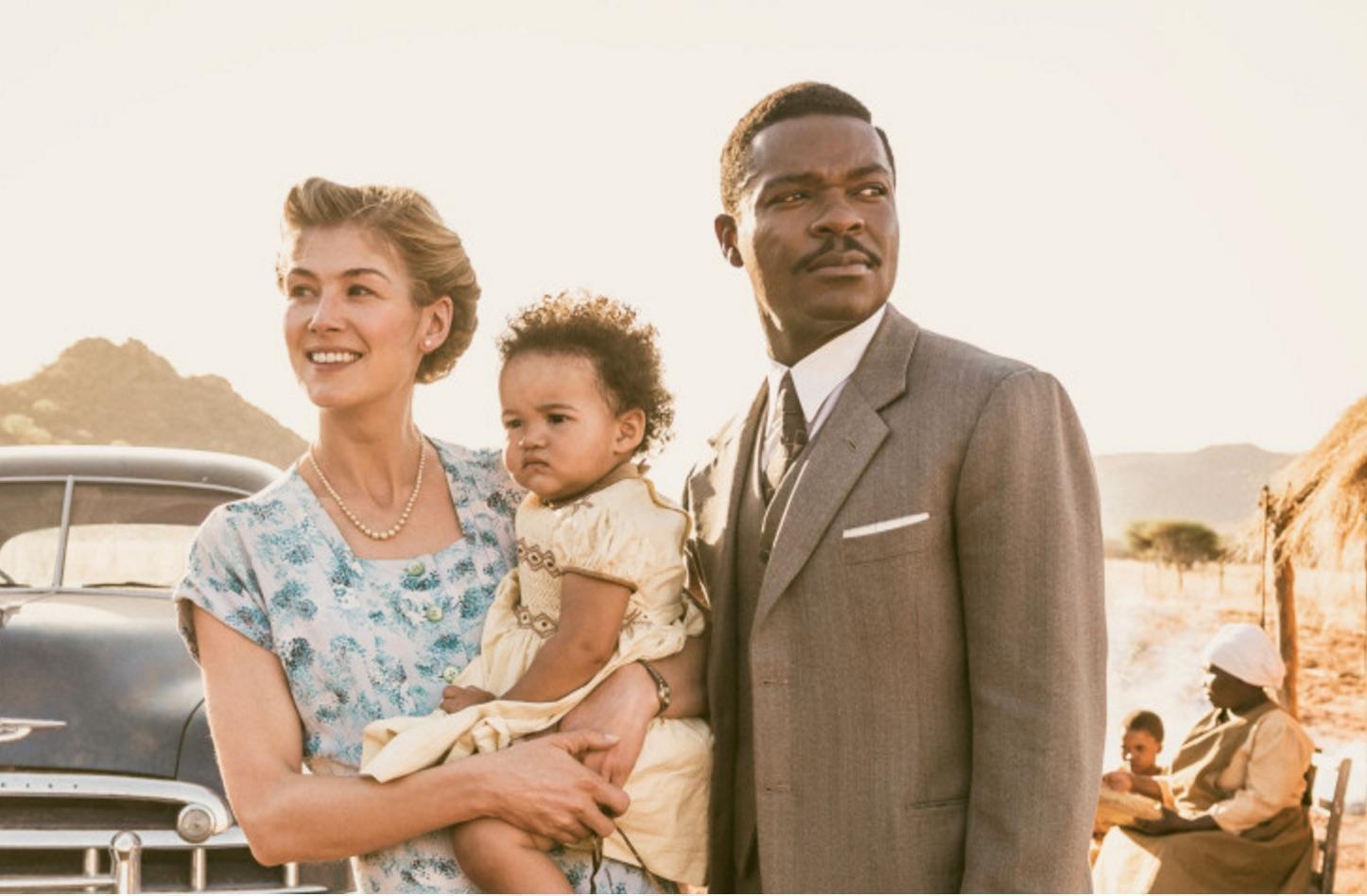A United Kingdom, London Film Festival review: A likeable film reminiscent of old Richard Attenborough movies
The screenplay is cleverly structured but Amma Asante's movie lacks dramatic tension

Your support helps us to tell the story
From reproductive rights to climate change to Big Tech, The Independent is on the ground when the story is developing. Whether it's investigating the financials of Elon Musk's pro-Trump PAC or producing our latest documentary, 'The A Word', which shines a light on the American women fighting for reproductive rights, we know how important it is to parse out the facts from the messaging.
At such a critical moment in US history, we need reporters on the ground. Your donation allows us to keep sending journalists to speak to both sides of the story.
The Independent is trusted by Americans across the entire political spectrum. And unlike many other quality news outlets, we choose not to lock Americans out of our reporting and analysis with paywalls. We believe quality journalism should be available to everyone, paid for by those who can afford it.
Your support makes all the difference.For many, the immediate post-war years were a golden period in British political life. The country may have been impoverished and in an era of extreme austerity but this was when the National Health Service was created. It was, at least according to popular myth, a time of new-found tolerance and consensus in which old class divisions began to be eroded.
This is not at all the vision of Britain offered in Amma Asante’s rousing new feature, A United Kingdom (which opened the London Film Festival this week.) The film begins in 1947. It recreates Attlee era London in loving detail, paying exhaustive attention to the clothes, the watered-down British jazz of the era, the drab bedsits, the red buses and even the friendly milkmen. It also suggests that racism permeated every corner of British society. From thugs on the streets who attack a black man simply because they see him with a white woman to duplicitous Whitehall mandarins, desperate to maintain strong British relations with white South Africa, racial prejudice is everywhere. The Labour Prime Minister Attlee doesn’t rise above it and nor does the leader of the opposition, Winston Churchill.
Prince Seretse Khama (David Oyelowo) is in London. He is the heir to the throne of Bechuanaland (later to be known as Botswana) and has been sent to Britain to study law as part of his education. “You left as a boy, you must return as a man,” his uncle and guardian Tshekedi (Vusi Kunene) tells him. Few in London seem aware of his royal connections. By chance, he meets and falls in love with Ruth Williams (Rosamund Pike), an office worker. He marries her and proposes bringing her back to Africa. That’s when the problems start in earnest. Her father (Nicholas Lyndhurst) disowns her. Back in Bechuanaland, his uncle is furious. When he returns there with his bride, he encounters extreme hostility. The locals won’t accept her as “mother of the nation” and it looks as if he therefore won’t be able to accede to the throne.

It’s at this point that the film begins to creak a little. Gradually, the focus moves away from the relationship between Seretse and Ruth as we are treated to tribal meetings and endless encounters between Seretse and the well-spoken but duplicitous British diplomats who treat him with so much contempt.
Oyelowo plays Seretse in moving fashion as an idealistic man who won’t accept apartheid in any form and who certainly won’t abandon his white wife for political expedience’s sake. Pike’s character shares his principles and chafes against the sexism of the British civil servants who dismiss her as a girl from “the typing pool.” Pike captures her character’s steeliness; her refusal to be browbeaten either by her own family or by Seretse’s disapproving relatives and her determination to adjust to life in Africa.
A United Kingdom is a very likeable film about two very admirable people. In its celebration of tolerance and liberal, humanist values, it is reminiscent of old Richard Attenborough movies. (As if to acknowledge the fact, we even get a glimpse of a very youthful Attenborough when the coupe attend an open-air screening of Brighton Rock.) Guy Hibbert’s screenplay is cleverly structured and interweaves the romantic and political elements in deft enough fashion. What is lacking, though, is dramatic tension or ambivalence. Seretse and Ruth are such decent and wholesome characters that we know they’re bound to prevail in the end. It’s only a matter of time until those sherry-quaffing, supercilious British colonialists will get their comeuppance.
A United Kingdom arrives in UK cinemas on 25 November
Join our commenting forum
Join thought-provoking conversations, follow other Independent readers and see their replies
Comments